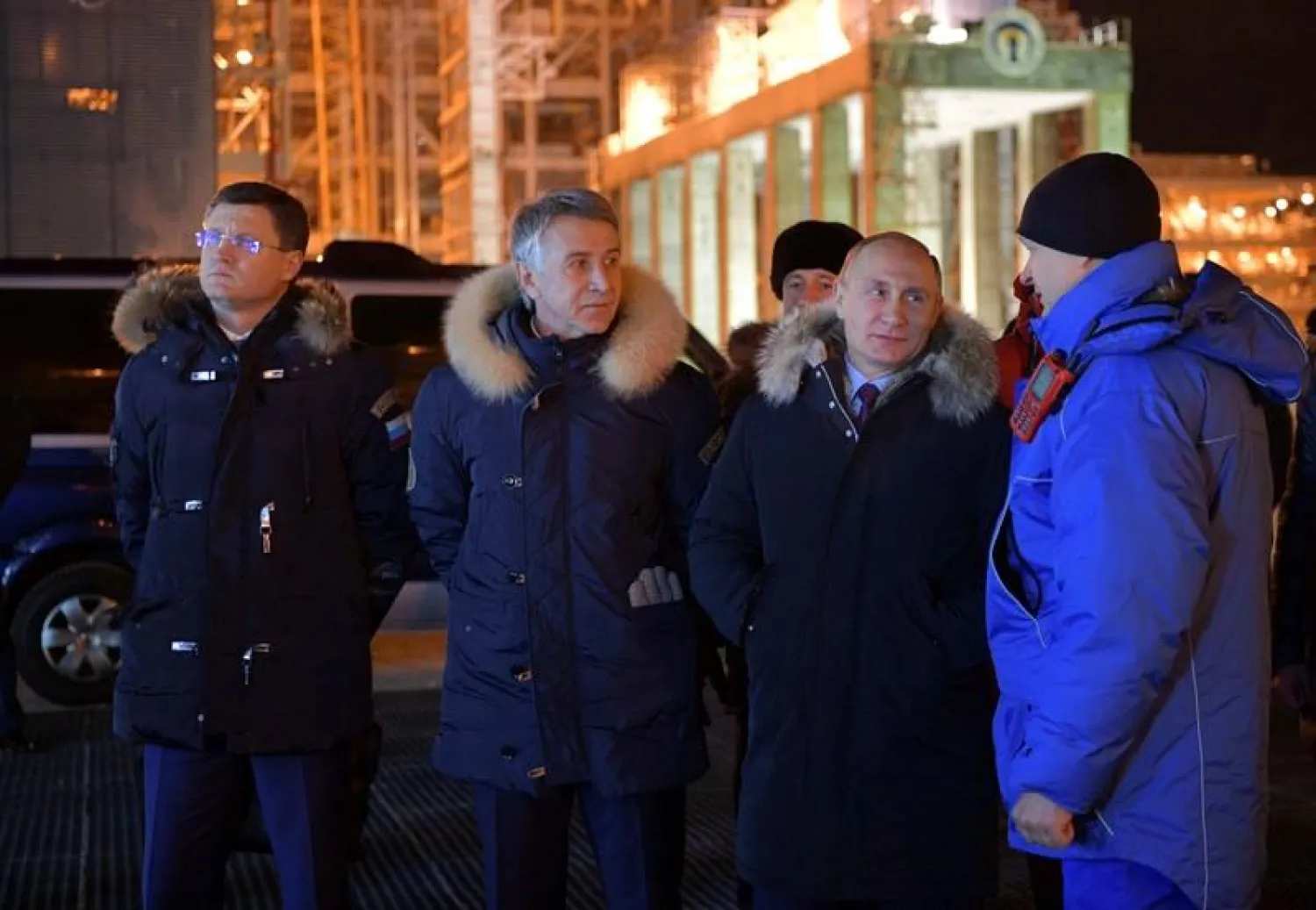Russian President Vladimir Putin said Friday that Russia was ready to sell Saudi Arabia liquefied natural gas, the Interfax news agency reported.
“Buy our gas and you’ll save oil,” Putin told Saudi Energy Minister Khalid Falih after having given the order to start loading the first gas tanker with liquefied natural gas at the Novatek-led Yamal LNG project in the Arctic.
“If we continue to work the way we do, we will turn from rivals into partners. All benefit from joint work,” Reuters quoted him as saying.
“I am confident the second and the third parts of the project will be commissioned ahead of schedule,” Putin said at the ceremony to load the first shipment on to an ice class tanker.
Falih had tweeted that he had received an invitation from Russian Energy Minister Alexander Novak to participate in the launching of the gas plant in the snow-covered Arctic port of Sabetta.
Leonid Mikhelson, ranked Russia’s richest businessman and head of Novatek which has a 50.1 percent stake in Yamal LNG, said on Friday he discussed gas projects with Saudi officials but did not give details.
Yamal LNG is 20 percent owned by France’s Total.
The first phase of the $27 billion project was completed in December. Other phases are due to onstream in 2018 and 2019.
Until Yamal LNG was built, Russia had one LNG plant, known as Sakhalin-2, controlled by Gazprom. Shell holds a 20 percent stake in the project on the Pacific island of Sakhalin. It produces almost 11 million tons a year.
"Despite challenging operating conditions, Yamal LNG was delivered on time and on budget," Samuel Lussac, an oil and gas specialist at Wood Mackenzie consultancy, told Agence France Presse. "That is unusual in the LNG industry."
"Novatek, once a domestic gas supplier, becomes a global LNG player" with the project, he said.
Russia intends to strengthen its market presence in Asia. It already derives a huge share of income from pipeline deliveries to Europe.
Lussac said that the coming months will show "whether the plant can operate smoothly in the harsh Arctic environment".
Transportation through the Northern Sea Route also remains undeveloped, and "its feasibility as a major LNG delivery route is unclear", he added.
The route along the northern coast of Siberia allows ships to cut the journey to Asian ports by 15 days compared with the conventional route through the Suez Canal, according to Total.









